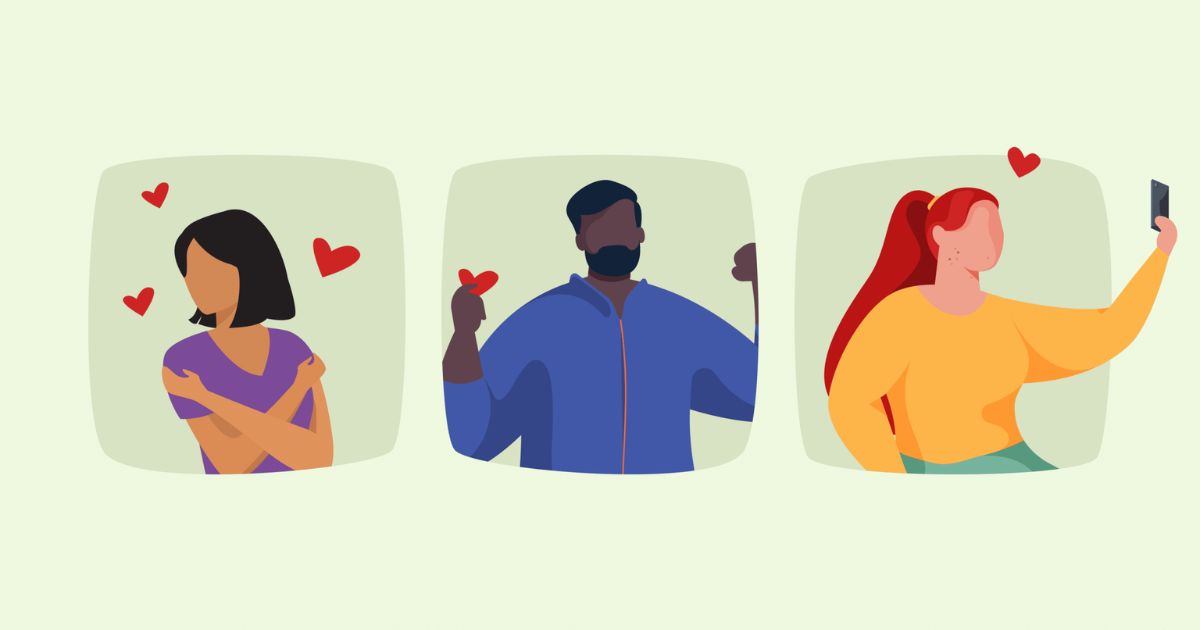A groundbreaking global study has unveiled a compelling connection between self-acceptance of one’s physical appearance and an improved quality of life. Learning to love your body, regardless of societal expectations, could be the key to unlocking a path toward better mental health and happiness.
This research challenges the prevailing ideals promoted by the media and underscores the value of embracing one’s individuality.
In a world often saturated with unrealistic beauty standards and ideals perpetuated by media, the concept of body positivity is gaining prominence.
The idea behind it is simple yet profound: to accept and appreciate one’s body as it is, with all its unique features, quirks, and perceived imperfections.
Research Unveils Key Findings Related To Mental Health And Happiness
A global study conducted by researchers from various countries now sheds light on the tangible benefits of embracing body positivity.
The study suggests that those who reject media-promoted ideals and cultivate self-acceptance tend to enjoy a better quality of life, marked by increased happiness and overall well-being.
The global study involved participants from diverse cultural backgrounds and age groups.
Researchers examined the relationship between self-acceptance of one’s physical appearance and various aspects of life quality. The findings revealed several significant insights:
- Improved Mental Health: Participants who reported greater self-acceptance of their physical appearance exhibited lower levels of anxiety and depression, highlighting the profound impact of self-esteem on mental well-being.
- Enhanced Relationships: Embracing one’s physical appearance was associated with more positive interpersonal relationships. Participants who felt more comfortable in their own skin reported improved communication and satisfaction in their relationships.
- Higher Life Satisfaction: Individuals who rejected media-driven beauty standards and practiced self-acceptance reported higher levels of life satisfaction and overall happiness.
The media’s influence on body image and self-esteem cannot be overstated. Across various platforms, from magazines to social media, unrealistic beauty standards are often portrayed as the norm.
These ideals can lead to body dissatisfaction and negative self-perception among individuals striving to meet unattainable benchmarks.
Dr. Sarah Rodriguez, a psychologist specializing in body image and self-esteem, explained, “Media has a profound impact on how we perceive ourselves. Constant exposure to perfected images can erode our self-esteem and create unrealistic expectations. Embracing our uniqueness is a powerful antidote to these harmful effects.”
The study’s findings underscore the importance of fostering body positivity as a means to improve mental health and overall life quality.
Embracing one’s body, flaws and all, can be a transformative journey toward self-acceptance. Here are some strategies to cultivate body positivity:
- Practice Self-Compassion: Treat yourself with the same kindness and compassion you would offer to a friend. Remember that nobody is perfect, and it’s okay to have imperfections.
- Limit Media Exposure: Be mindful of the media you consume. Unfollow accounts that promote unrealistic beauty ideals and seek out content that celebrates diversity and body positivity.
- Surround Yourself with Support: Connect with individuals who uplift and encourage body positivity. Engage in conversations that challenge harmful beauty standards.
- Self-Affirmations: Incorporate positive self-affirmations into your daily routine. Remind yourself of your worth beyond physical appearance.
The global study’s findings offer a compelling reminder that self-acceptance and embracing one’s unique physical appearance can significantly enhance mental health and overall life satisfaction.
In a world dominated by media-promoted beauty ideals, the path to happiness may lie in rejecting these standards and learning to love ourselves as we are. The journey toward body positivity is a transformative one, paving the way for a more fulfilling and contented life.




























